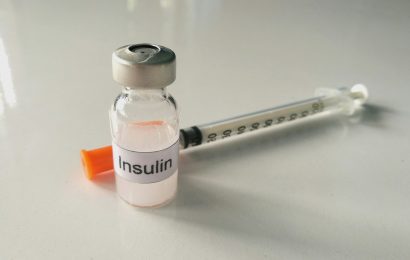A while back I wrote about why metformin is the number one treatment for Type 2 diabetes. Now new research finds metformin prevents cancer and heart disease and may actually slow aging! Where can I get this stuff?
A study from Scotland found that people on metformin had only roughly half the cancer rate of people with diabetes who weren’t on the drug. This is important, because diabetes is associated with higher risks of liver, pancreas, endometrial, colon and rectum, breast, and bladder cancer.
Nobody could explain how metformin helped, but then Canadian researchers showed that metformin reduces cell mutations and DNA damage. Since mutations and DNA damage promote both cancer and aging, this is striking news. No one thought we could limit mutations before, but perhaps metformin can do it.
A study on mice exposed to cigarette smoke showed that those given metformin had 70% less tumor growth. A small study of humans in Japan showed similar improvements in colorectal cancer outcomes. Metformin is now being studied in clinical trials for breast cancer. The researchers write, “Women with early-stage breast cancer taking metformin for diabetes have higher response rates to [presurgical cancer therapies] than diabetic patients not taking metformin.” They also had better results than people without diabetes.
How Does It Work?
According to Michael Pollak, MD, professor in McGill’s Medicine and Oncology Departments, metformin is a powerful antioxidant. It slows DNA damage by reducing levels of “reactive oxygen species” (ROS). ROS are produced as byproducts when cells burn glucose. Just as oxygen helps fires burn or metals rust, ROS will oxidize (“burn” or “rust”) the nuclei or other parts of cells. ROS are what the antioxidant vitamins are supposed to block. Whether these supplements actually prevent oxidation is unclear.
But metformin apparently does work as an antioxidant. Even better, it mainly acts on cells that are trying to turn cancerous. Gerardo Ferbeyre, MD, PhD, of University of Montreal’s Department of Biochemistry, said, “The drug seems to selectively prevent [ROS] production from … cells with [cancer-causing] mutations.”
Spanish scientists published in the journal Cell Cycle that metformin seems to block cancer in two ways. Like a chemotherapy drug, it blocks certain enzymes cancer cells need to reproduce. But the scientists wrote that metformin’s glucose-lowering and insulin-lowering effects may be more important. Metformin mimics the effect of severely restricting calories. The lowered insulin level enables healthy cells to reproduce better, so they don’t become cancerous.
The American Diabetes Association says that, “Early evidence suggests that metformin is associated with a lower risk of cancer and that [injecting] insulin is associated with an increased cancer risk.” But the effect is not great, so they say “cancer risk should not be a major factor in choosing diabetes therapies for the average patient.” However, if insulin promotes aging and cancer, it seems reasonable to use as little as possible.
As a powerful antioxidant, metformin may actually slow aging. Anti-aging guru Ward Dean, MD, calls metformin “the most effective anti-aging drug there is.” A study of female mice showed those taking metformin lived an average of 37% longer than those without the drug. Although they ate about the same amount of food, the metformin mice weighed less. It has long been known that mice and rats fed very-low-calorie diets live longer. This sounds like metformin is mimicking a low-calorie diet, extending life and preventing cancer while subjects eat normally. Sounds like a good thing.
What is Metformin Anyway?
Metformin is basically a refined herbal medicine derived from a flower called French lilac (Galega officinalis). In Europe, French lilac is also called “Goat’s Rue,” because goats don’t like it — it lowers their blood sugar too much. It has been used as diabetes medicine by healers for centuries.
French diabetologist Jean Sterne was the first to try metformin on humans for the treatment of diabetes. He coined the name “Glucophage” (glucose eater) for the drug and published his results in 1957. It was officially approved for use in Canada in 1972, but not in the US until 1995.
It’s interesting how many of our best medicines are based on natural substances, not developed in any laboratory. Aspirin and penicillin come to mind. Metformin may be in their league for benefiting people.
There are possible harmful effects from metformin. If you are on insulin, you will be in more danger of going low, because metformin turns off the liver’s ability to compensate for low sugars. So it’s probably not for Type 1s. (Editor’s Note: Metformin is currently not approved for use in Type 1 diabetes, but studies are under way to assess its effects on this condition.) It also seems to lower vitamin B12 level, so you might need supplements for that. And it (rarely) causes liver or kidney problems, so you might need to be tested for that occasionally.
If you have Type 2 or 1.5, you might ask your doctor about maxing out on metformin and reducing insulin, or Actos, or other oral drugs. There seem to be many benefits.




